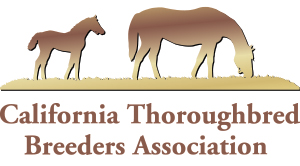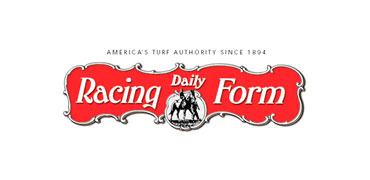By Jay Hovdey, DRF.com
CYPRESS, Calif. (Dec. 19, 2014) — John Houseman was an overnight sensation at the age of 71 when he stepped out from behind his role as producer of award-winning films and mentor of acting talent to accept an Oscar for his supporting role in the 1973 movie “The Paper Chase.”
Bertrand Russell finally was recognized with the Nobel Prize for literature in 1950 at age 78, already having filled the first half of the 20th century with his benchmark writings on philosophy, mathematics, history, and social criticism.
Yuichio Miura waited until he was 70 before scaling the summit of Mount Everest for the first time in 2003. He made it, then he climbed it again when he was 75 and 80.
Then, there is Art Sherman, who spent six decades as anything but a horse racing household name before winning the Kentucky Derby and Preakness with the unlikely California Chrome to become the sport’s breakthrough star of 2014 at the age of 77. Without even trying, he’s still milking it for all he’s worth.
“I haven’t been at Santa Anita lately, where I usually get my haircut, so I went down to this place in Rancho Bernardo the other day,” Sherman said this week from his California home. “I’d never been there before, but it seemed like a nice barber shop, and sure enough, the first guy I run into says, ‘You’re Art Sherman!’ That got everybody in there pumped up.
“It was kind of cool. It was all women cutting hair, too. Nothing like my dad’s shop. You know, a shampoo, a little shoulder massage – I like to be pampered.”
He’s earned the right. Horse racing does not manufacture its best-known ambassadors. It goes with the personalities that drop in its lap. In the case of Art Sherman, the sport lucked into a fully formed racetrack character with a story right out of Damon Runyon, a barber’s son who ran off to join the circus as it was presented under big tents like Santa Anita, Hialeah, and Belmont Park. He also was a media-friendly people person who seemed to say the right thing without really trying.
It was only a year ago, though – a drop in the bucket of Sherman’s life in the sport – that Sherman was still just another face in the West Coast training crowd as he stood in the winner’s circle at Hollywood Park beside the leggy, white-stockinged chestnut colt who had just won the King Glorious Stakes for 2-year-olds bred in California. The accomplishment was noted and promptly shoved aside as the melancholy events of Dec. 22, 2013, overwhelmed anything happening out on the track.
“That was a very emotional thing for me,” Sherman said. “I rode my first race at Hollywood Park. Standing there, knowing we’d never be back was really a sad deal, even if we were standing in the winner’s circle at the time.”
Too much can be made of the symbolic timeline that followed, but the coincidence that a colt named California Chrome could emerge from the closure of one of California’s greatest racing institutions requires at least a moment’s pause. Upon his eviction from Hollywood Park, Sherman and his horses took up residence at Los Alamitos and its spanking-new racing surface, guinea pigs in an experiment cobbled together from the remaining players on the Southern California scene.
Sherman’s appreciation for the accomplishments of California Chrome comes not from archives and yellowed newsprint but from a personal history of firsthand experience. While the modern generation of classic-winning trainers pays respectful lip service to those who came before, Sherman was there, way back when, riding boot to boot at one time or another with Eddie Arcaro, Bill Shoemaker, John Longden, Milo Valenzuela, and Bill Hartack. Sherman got an early, heady whiff of glory from being around trainers like Mesh Tenney, Bill Molter, Horatio Luro, and Frank Childs.
Like them, Sherman learned what it meant to do your work in the fishbowl of public scrutiny.
“To go through what we’ve been through and have fun at the same time, that’s really something,” he said.
Sherman also had to absorb the idea that he was one of those overnight sensations who suddenly knew how to train a good horse like Houseman figured out how to act.
“All that never really bothered me,” Sherman said. “Anyway, I’ve always had a good time. Of course, winning the Derby changes your life. It puts you in a privileged group. You’re just so happy to be among those great trainers and their great horses. I mean, when you win the Kentucky Derby, you’re in the history books, when you don’t really ever have a chance for that just winning stakes races.
“But now you can go to Churchill Downs and look up at the names above the paddock there and see your horse,” Sherman added. “You could be long gone, and the kids will be able to say, ‘That’s father’s horse up there.’ ”
Charlie Whittingham said it more than once, and if they were smart, they listened: “If nobody told you when you were born, you’d never know how old you were.”
He got that right, along with a peerless training career that served as the model for those of Sherman’s generation. Whittingham was 73 when he won the Kentucky Derby for the first time and 76 when he won it the second, an actuarial fact that pleases Art Sherman almost as much as having won the race itself.
“Imagine topping Charlie at anything,” Sherman said.
Imagine topping Sherman.


